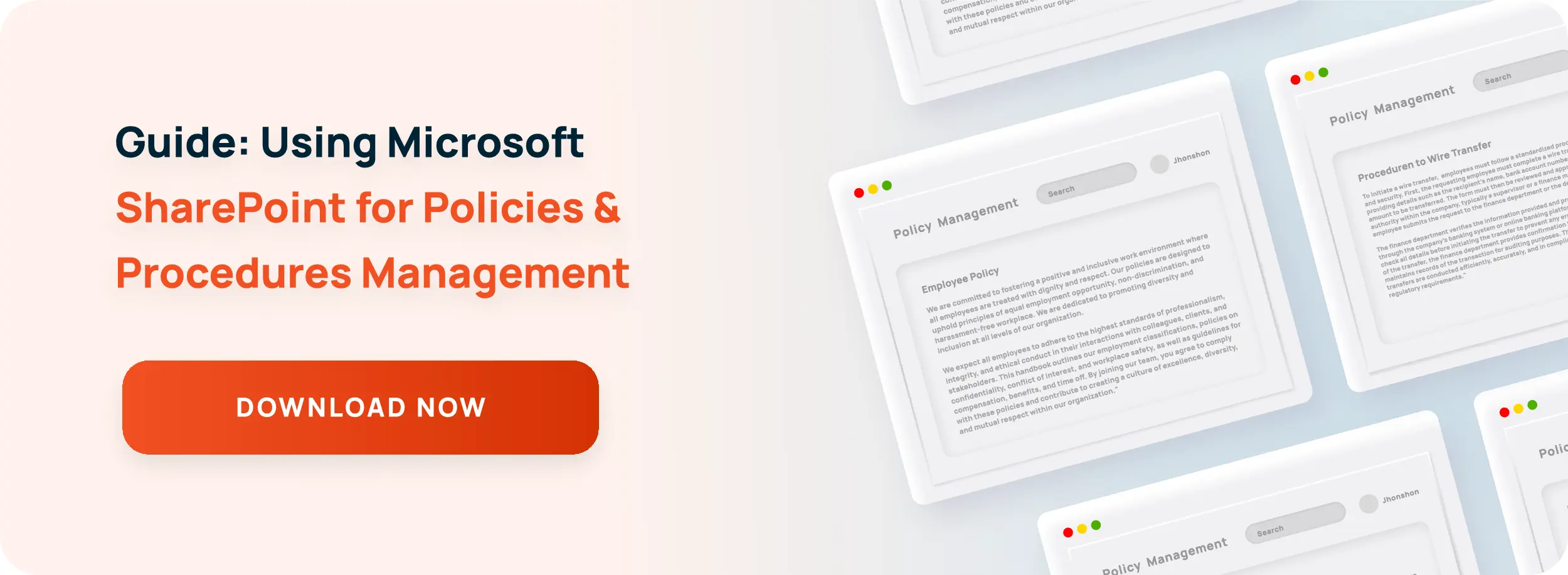Policy Management Audit – How to Best Prepare

Policy Management Audit
When audits are due at organizations around the nation, compliance and legal departments are stressed to provide the necessary documents and resources to meet government or industry regulations. Preparations to pass audit tests should begin well before the scheduled date and take lots of time, requiring organizations to stay on top of their policy management processes. While many businesses have the right intentions in preparing for their audit, some are strapped for time and prepare at the very last minute. In some cases, they even fail to pass it.
Today’s businesses cannot afford to fail an audit test. The repercussions of a failed test affect all the levels of an organization and can lead to stricter regulations placed upon it until the next scheduled audit test. It is necessary to understand the importance of maintaining an audit trail for your policies and procedures. It can prevent the above stressful scenarios and help your business pass with flying colors
So how do you best prepare for your policy management audit? Whether your organization has an existing process or you’re starting from scratch, consider these key points:
Start Preparing Well in Advance
While audit tests are scheduled, managing your policies is a constant process that should be kept up with on a regular basis. Keeping track of all the processes involved with your policies and procedures, from the creation, distribution and acknowledgement phases, is crucial. Creating audit trails for each document allows for your compliance and legal teams to quickly analyze version status, upcoming revisions, and final approval among other elements of each policy. Instead of gathering all of the resources at the last second, getting a leg up on your policy audit trails will pay off in the long run.
Establish Reliable Communication Processes
Logistical errors are bound to happen with unorganized policy management processes, leading to further issues once you’re required to submit an audit. While email is an established form of communication for all sorts of business purposes, it is very unreliable during the policy creation, distribution and acknowledgement processes. Once multiple individuals become involved with these processes, it is difficult to create an accurate audit trail. Using a shared drive or other some other central location to store your policies can help tighten up the communication process and avoid failing an audit test.
Work In the Same Ecosystem
Once your organization has established which communication channels to use, tracking your policies and procedures will now be a much simpler task. To make that process even simpler, finding a policy management lifecycle tool to automatically create an audit trail of all your policies in each phase will display all of the information needed for an audit test. Whenever a policy or document is updated, your team will be able to see who viewed the it, what was updated, and where it sits within your current processes. When it is time for your audit test, you won’t be scampering to collect all of the information pertinent to your policies and procedures.
Fortunately, ConvergePoint’s Policy Management Software and Office 365 Add-In featured built-in audit tracking so you’re equipped with all the necessary information when it’s time to pass your audit test. Through the policy creation, distribution and acknowledgment phases, key metrics are stored so your organization doesn’t have to scavenge for data, lose important documents, and possibly fail an upcoming audit test.
Related Article: Do Your Policies Stand Up To An Audit
Talk to a compliance specialist to learn how our Policy Management expertise can be applied to your business by scheduling a demo now.

